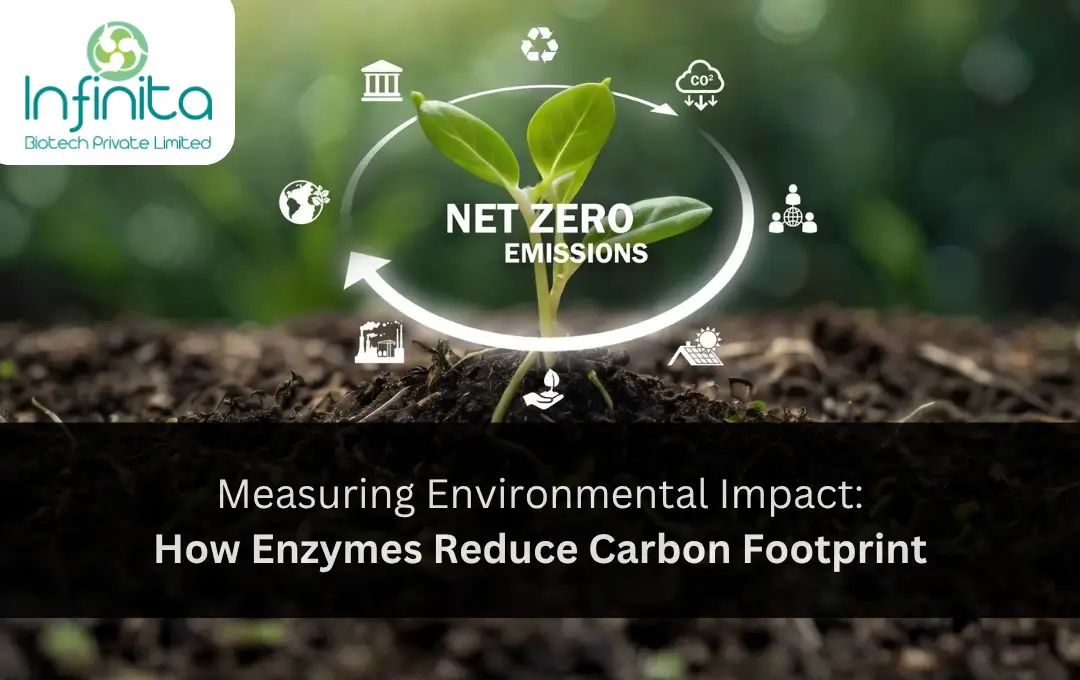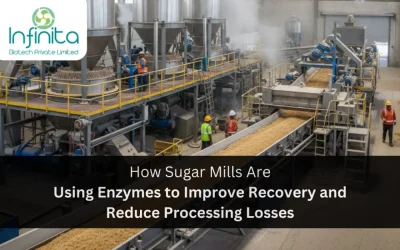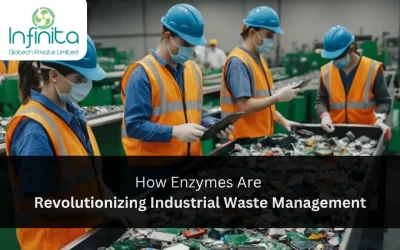The Growing Need for Sustainable Industrial Practices
Industrial operations are under increasing pressure to reduce their environmental impact while maintaining efficiency and profitability. Energy-intensive processes, excessive chemical usage, and waste generation contribute significantly to a company’s carbon footprint and environmental compliance costs.
Enzymatic processes are emerging as a powerful alternative, offering industries a way to optimize operations while reducing carbon emissions. But how exactly do enzymes contribute to lowering the environmental impact of industrial processes? Let’s explore the science, the numbers, and the long-term benefits.
Understanding the Role of Enzymes in Sustainability
Enzymes are biological catalysts that accelerate chemical reactions under mild conditions—typically near room temperature and neutral pH. This contrasts with traditional chemical processes that often require high temperatures, strong acids or alkalis, and energy-intensive equipment.
By operating under gentle conditions, enzymes minimize energy consumption, reduce chemical usage, and generate biodegradable by-products—all of which contribute to a smaller carbon footprint.
Key Factors in Carbon Footprint Reduction
Below are the primary ways enzymes help industries reduce their environmental impact:
| Factor | Traditional Chemical Process | Enzymatic Process |
|---|---|---|
| Energy Consumption | High due to heating, agitation, and pressure | Low, functions efficiently at mild conditions |
| Raw Material Usage | Large quantities of synthetic chemicals are required | Small enzyme doses with high catalytic efficiency |
| Waste Generation | Toxic effluents require treatment and disposal | Biodegradable by-products, minimal waste |
| Equipment Wear & Tear | Corrosive chemicals reduce equipment lifespan | Gentle on machinery, reduces maintenance needs |
| Overall Carbon Emissions | High due to energy and chemical use | Significantly lower due to energy savings and biodegradability |
Energy Efficiency and Process Optimization
Energy is one of the largest contributors to carbon emissions in industrial processes. Enzymes allow operations to run at lower temperatures and with reduced mechanical agitation. This decreases electricity and fuel usage, translating directly into lower CO₂ emissions and operational costs.
Waste Minimization and Environmental Compliance
Chemical-intensive processes produce hazardous effluents that require extensive treatment before disposal. Enzymatic reactions, on the other hand, generate biodegradable by-products, reducing the burden on effluent treatment systems and making it easier to comply with environmental regulations.
Enhancing Sustainability Through Quality and Yield
In addition to lowering emissions, enzymes improve product quality and consistency. High substrate specificity ensures minimal waste and maximizes yield. For example, in the textile industry, enzyme-based bio-polishing not only reduces water usage but also lowers energy requirements, contributing further to a reduced environmental footprint.
Long-Term Environmental and Economic Benefits
Adopting enzyme-driven processes may involve an initial investment in process optimization. However, the environmental and economic returns are significant:
- Reduced energy consumption lowers greenhouse gas emissions.
- Lower waste treatment and chemical disposal costs improve overall sustainability.
- Enhanced process efficiency and product quality increase profitability.
Enzymes also provide process stability and predictability, mitigating risks associated with raw material volatility and regulatory changes.
Conclusion: Leading the Way to a Greener Future
The industrial shift toward enzymatic processes is more than a technological advancement—it is a step toward sustainable manufacturing. By reducing energy use, minimizing chemical waste, and improving efficiency, enzymes play a critical role in lowering a company’s carbon footprint.
At Infinita Biotech, we help industries implement enzyme solutions that drive both environmental sustainability and operational efficiency. Our customized enzymatic solutions enable businesses to meet carbon reduction goals while maintaining profitability and product quality.
Contact our experts to discover how enzymes can transform your industrial operations into a greener, more sustainable future.

 Summarize this Article with AI
Summarize this Article with AI






